Student Blog
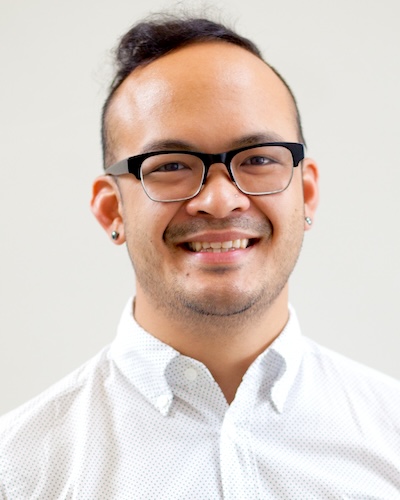
Leadership and Interprofessional Collaboration ⟩
October 27, 2015, by Joe
This past week I had a very special opportunity: the American Physical Therapy Association (APTA) invited me to represent OT at their National Student Conclave (NSC) in Omaha, NE. USC Chan really emphasizes leadership & innovation in the field, so I was able to attend this 2 day conference with support from faculty & the program through a Leadership Award.
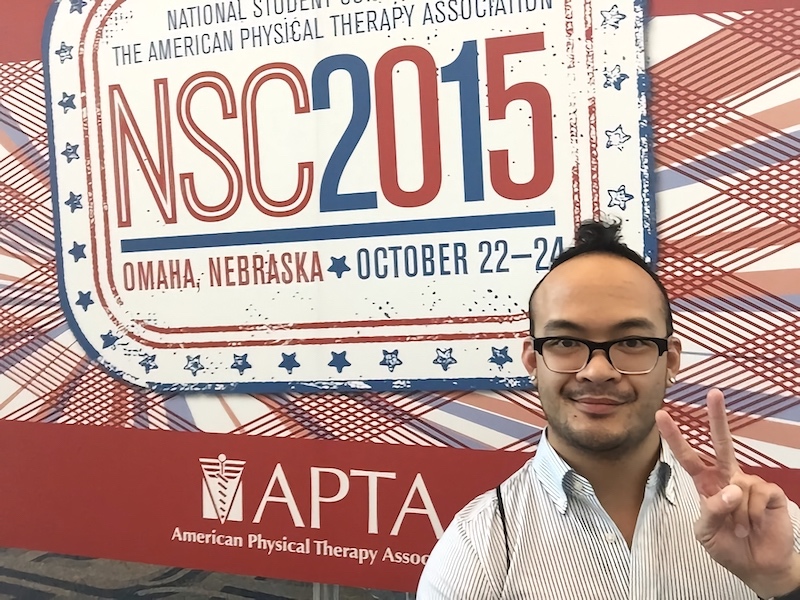
Joe at APTA’s National Student Conclave
Physical Therapy is one of our most frequent care team partners, so attending their student conclave was a unique opportunity to discuss interprofessional collaboration and get a better understanding of their profession on a national-level. I met with the leaders of the APTA Student Assembly and had meaningful conversations on how to manage our large student bodies and better develop student leaders. Funny enough, the point person for their interprofessional initiatives is a PT student from USC! My fellow Trojans did a great job at representing our school: winning the APTA Student Advocacy award, and playing an integral role in bringing together other professions to attend their National Student Conclave.
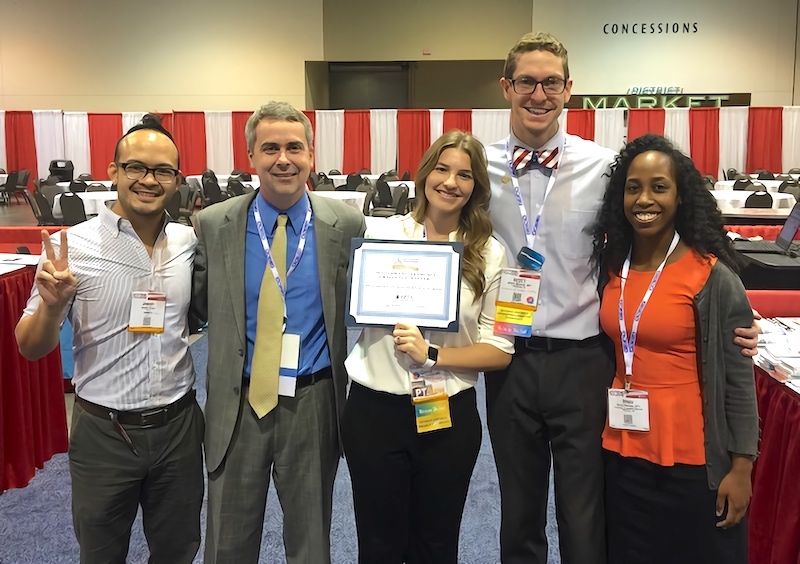
USC PT students win award
The sessions I attended were really enlightening as far as PTs’ practice concerns, and I was able to answer some questions student’s had about OT & collaboration in clinical practice. One of my favorite moments was the Town Hall with Sharon Dunn, DPT, the current President of APTA.
As the lone OT, I asked her to describe what she considered the challenges and future of interprofessional collaboration. Her response? Doing exactly what I was doing at their NSC — having collaborative conversations with each other when we weren’t in the high stakes/high stress environment of the clinic.
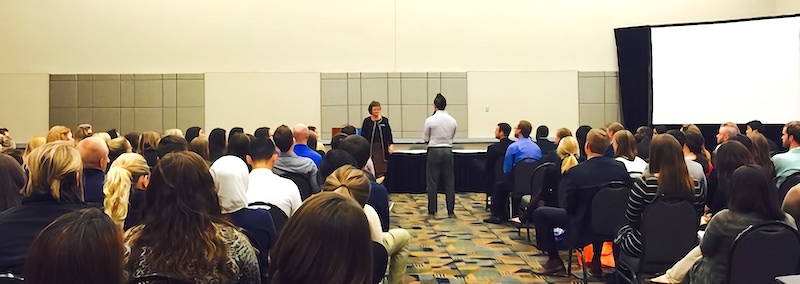
The lone OT asks the APTA President a question
Inspired to work on more interprofessional initiatives with students from other disciplines. Stay tuned!
⋯

OTAC Conference 2015 ⟩
October 27, 2015, by Jodie
Getting Involved What are OS/OT?
This past weekend, many of my classmates and I traveled to Sacramento to attend OTAC Conference! As the second-year OTAC student delegate, I was responsible for helping with the student track sessions and as a student ambassador, I volunteered at the OTAC Rose Float booth and our USC Chan booth. Although I had a packed schedule, it was so much fun collaborating with students and faculty from different programs across the state! Some of the student track session topics included: grassroots advocacy training, OTs role in the NICU, stress management and lifestyle balance for OT practitioners, as well as many other exciting topics! As a student attending conference, we were also invited to attend the President’s Reception, where the work of OT/OTAs in pediatric, early intervention, and school-based practice were celebrated. We were also able to explore the Exhibit Hall to network with exhibitors and listen to poster presentations from OT practitioners and students! As a special bonus treat for being a proud Trojan, students were also invited to attend the Trojan Alumni party. This reception was sponsored by our Trojan family and allowed us to network with past and current OT faculty while enjoying some refreshments. Here are some of my pictures from our wonderful weekend at conference!
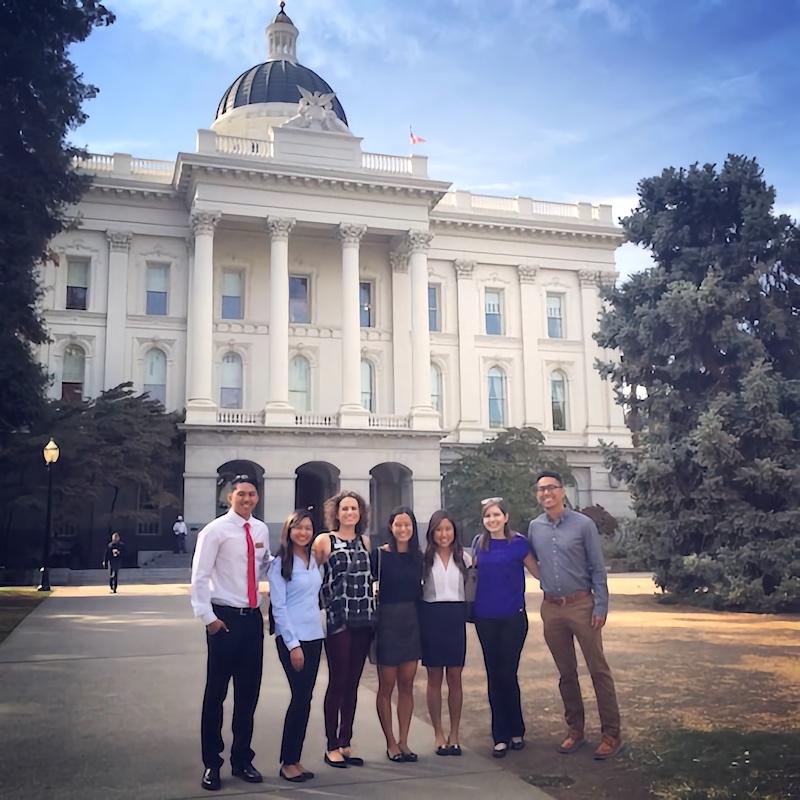
We had the opportunity to explore Sacramento during our free time! Do you recognize that building we are standing in front of?!
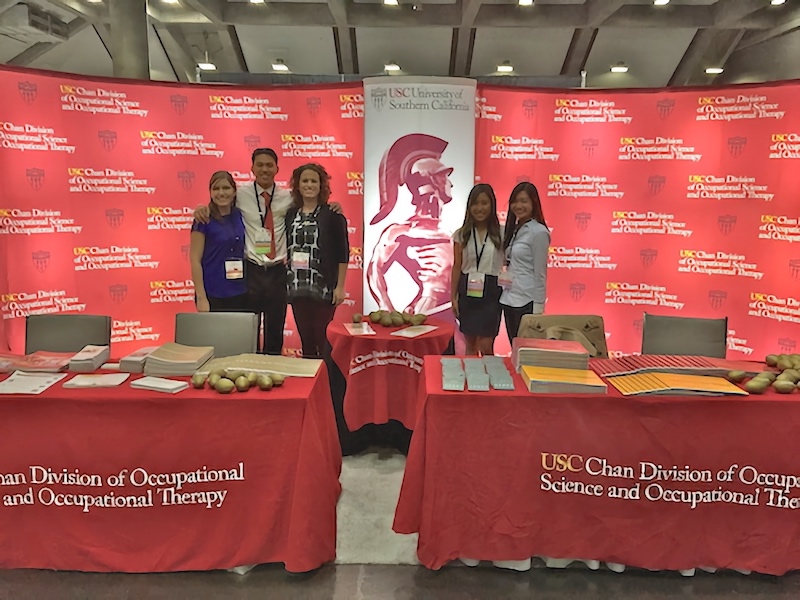
Doesn’t our USC Chan OT booth look amazing?! Thank you to my wonderful classmates who helped put this entire booth together!
As always, I hope you’ve enjoyed my blog! 😊
⋯

The Magic Garden ⟩
October 26, 2015, by Jodie
This semester I am in the mental health immersion and my level I fieldwork site, Century Villages at Cabrillo (CVC), is a nonprofit community development organization that delivers supportive services which aim to empower residents, restore health and inspire hope. CVC creates the physical and social conditions where collaborating programs can succeed to break the cycle of homelessness.
At CVC, I help facilitate three groups: walking group, cooking group and garden/arts and crafts group. My favorite thing about this fieldwork site is that I have the opportunity to interact with residents while at the same time, participate in some of my most meaningful occupations. (OT for everyone!) My favorite group that I participate in is the arts and crafts group that takes place in the “Magic Garden” on campus. Residents from all different programs come together to work on different art projects and I always enjoy having the opportunity to learn more about each resident while working on the craft activities in the serene garden.
Many residents on site are veterans and one in particular, who I have had the wonderful opportunity of getting to know more during the arts and crafts group, is a talented artist named Kevin. Kevin served in the military about 20 years ago however, has always had an interest in art, especially painting. While at CVC, Kevin continues to engage in his meaningful occupation and enjoys teaching fellow residents painting techniques, as well as showing off his artwork for everyone to admire. Kevin gave me permission to share some of his artwork with all of you in this blog so I hope you enjoy!
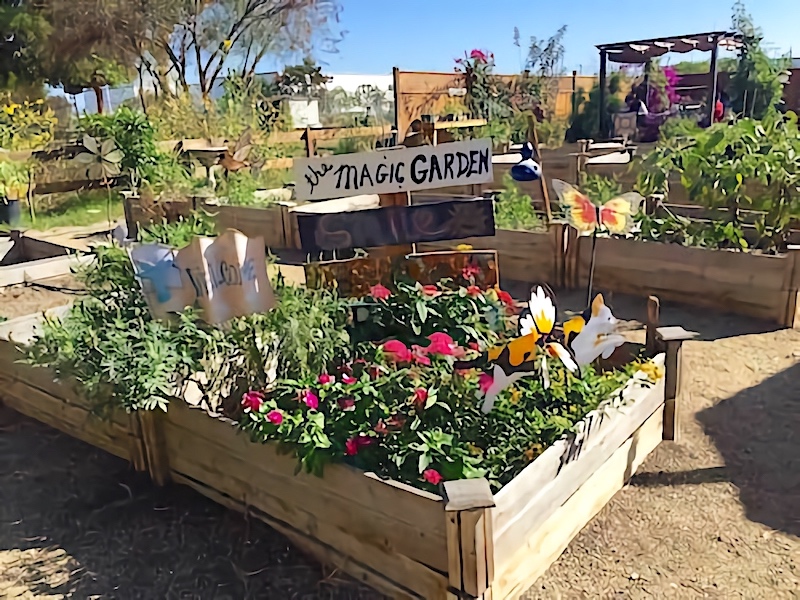
This is the “Magic Garden” where our groups take place
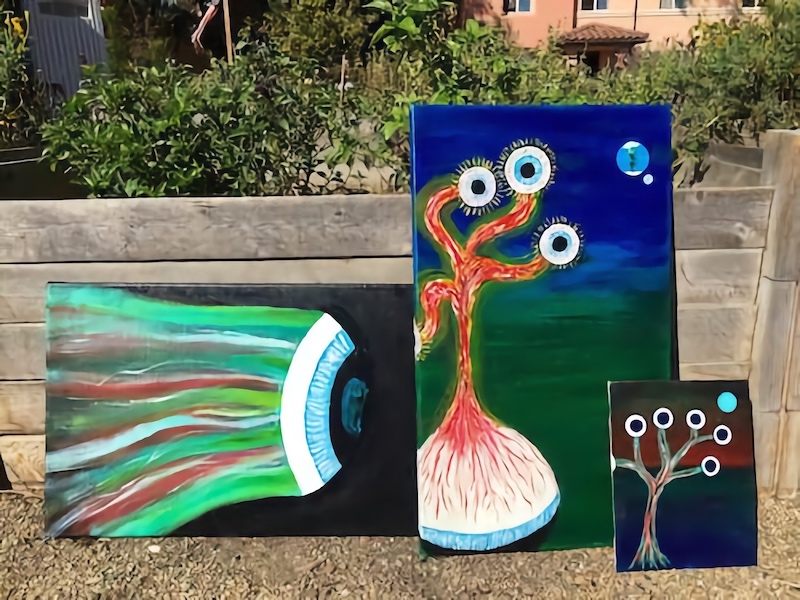
Some of Kevin’s artwork on display for everyone in the garden!
⋯
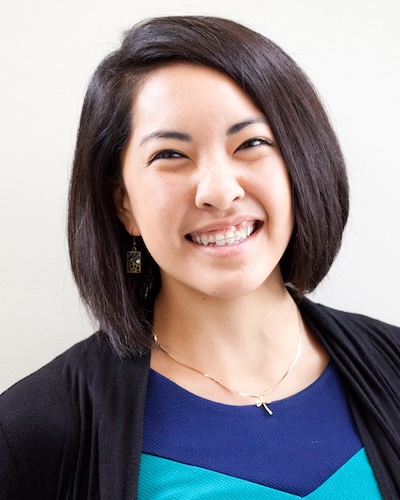
Assessing Cognition While COOKING! ⟩
October 24, 2015, by Rashelle
This week, in the Primary Care Elective class, we learned how to assess somebody’s cognitive abilities, by analyzing their performance in the kitchen! To begin, we looked at the Kitchen Task Assessment, which requires a patient to prepare pudding by following the directions of a commercial package. I was able to role play as the patient in front of the class, as another student pretended to be my therapist. Due to my limited knowledge in cooking and safety awareness, I fulfilled the perfect role of a patient needing cognitive support during a functional task of daily living.
The picture below displays the score I got on the Kitchen Task Assessment.
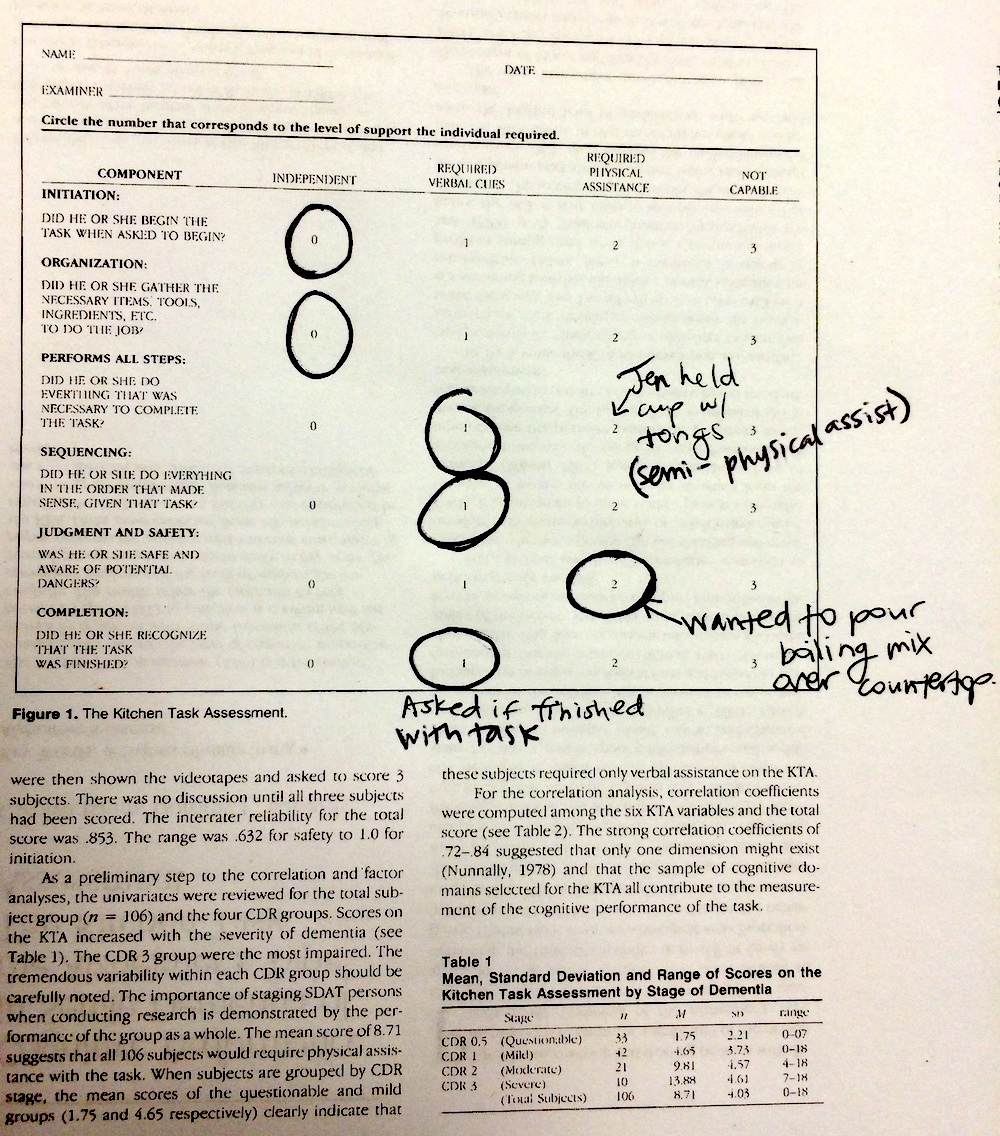
Scoring the Kitchen Task Assessment
As you can see, I required assistance from my therapist both in verbal cues and physical assistance. Jen, the practicing therapist, needed to give me verbal reminders of when to add in the pudding mix to the boiling water, how many cups were needed to pour the finished pudding into, and when the task had come to a complete end. I required slight physical assistance when Jen held one of the cups for me to pour the pudding into, and when I attempted to pour the boiling hot pudding mix into the cups on the counter, in an unsafe manner. PHEW. Was it a relief when I finished!
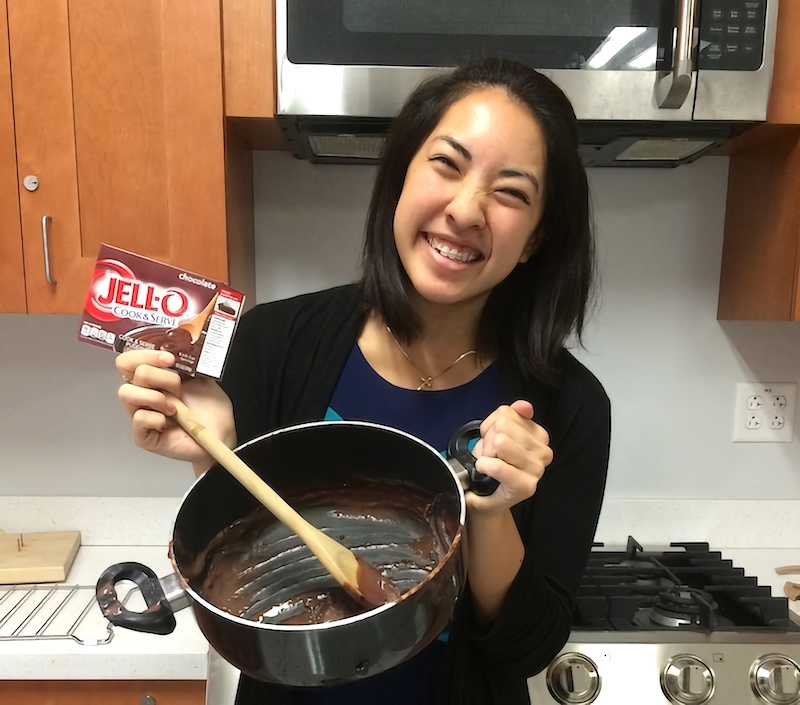
Finished Pudding After Completion of Kitchen Task
Every step of the pudding-making process we, as a class, discussed possible scenarios that we may encounter when working with a patient that may have an actual cognitive impairment (e.g., when diagnosed with Alzheimer’s or a traumatic brain injury). After role-playing this encounter, I can better empathize with my future patients, whom may face confusion, agitation, disappointment, apprehension or timidness while performing this task. I am excited to also be able to problem-solve with these patients on how they can change their approach to the task, to be able to cook as independently as possible, in a safe and effective manner.
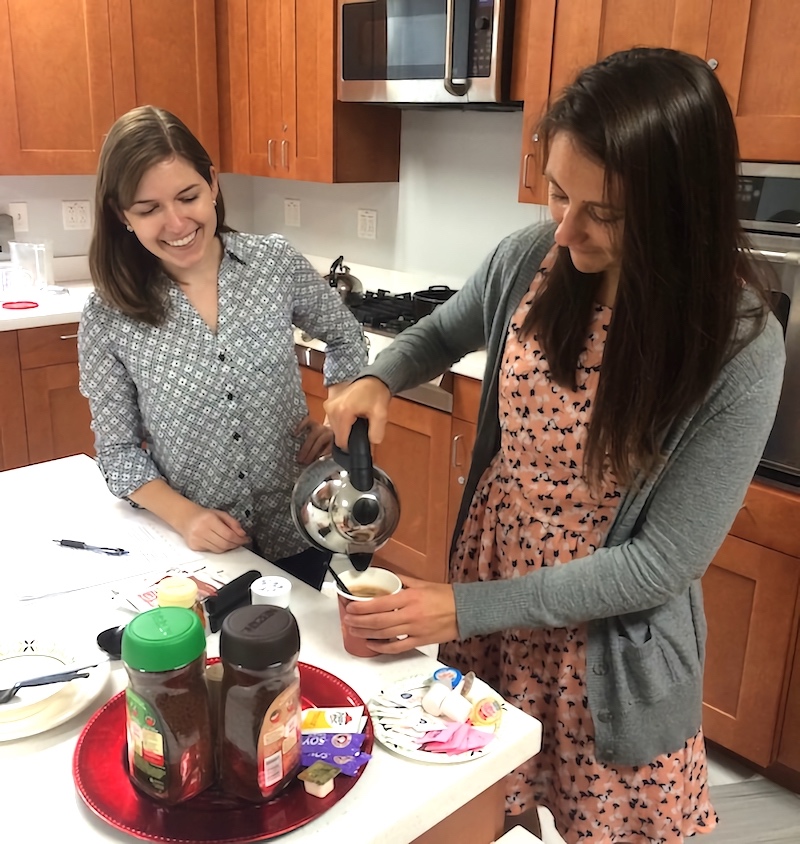
Kettle Test
Here, two other students, Kellyn Trummer and Renée Boivin, are demonstrating the Kettle Test — a cognitive functional screening test that requires a patient to prepare two cups of hot beverages. Similarly to the Kitchen Task Assessment, every component of the task is scored on the patient’s level of independence, which the therapist then will use to determine the amount of assistance the patient will need tp perform a functional task. For instance, the Kettle Test analyzes a person’s ability to prepare the hot water, assemble the kettle and add all of the ingredients together despite having visual distractions.
Overall, this lesson was a great opportunity to improve our clinical reasoning skills, and to practice assessments that an occupational therapist may use in the future!
⋯

Fieldwork Week: Pediatrics! ⟩
October 17, 2015, by Joe
For our Level 1 Fieldwork experience, we spend one day a week for 10 weeks at one clinical site to practice some of the skills we learn in class. In the middle of the semester, which is the point we’re in now, we also spend one full week at our fieldwork site to get a better sense of what it would be like to practice in this type of setting on a “full-time schedule.” As I mentioned last week, I am in the Pediatrics immersion this semester; my fieldwork site is a private outpatient clinic for children with autism.
During this clinical week, I was able to work with one of the boys, “Landon” (not his real name), to target fine motor development, and in order to get him interested in treatment, I had to find ways to make it fun and playful!
So here is my “super fancy, high-tech, top-of-the-line” fine motor tool:
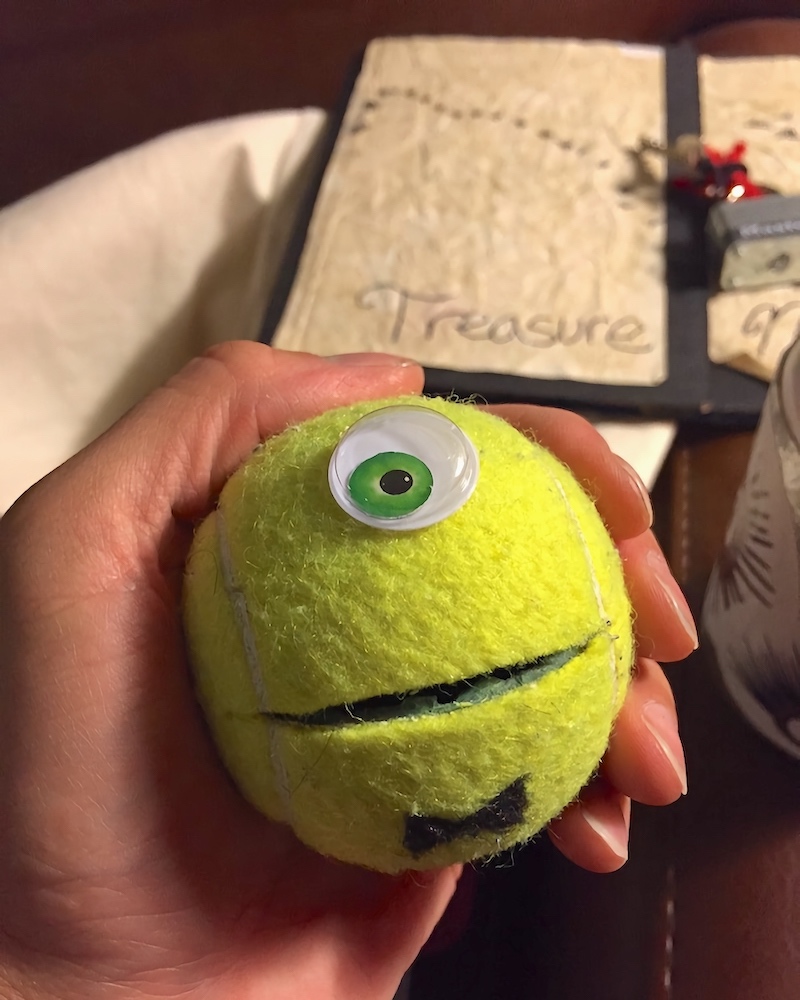
Meet “Penn”, my little Fine Motor Monster
Landon really loved playing with this little green dude. Using a simple toy like a tennis ball, we were able to work on:
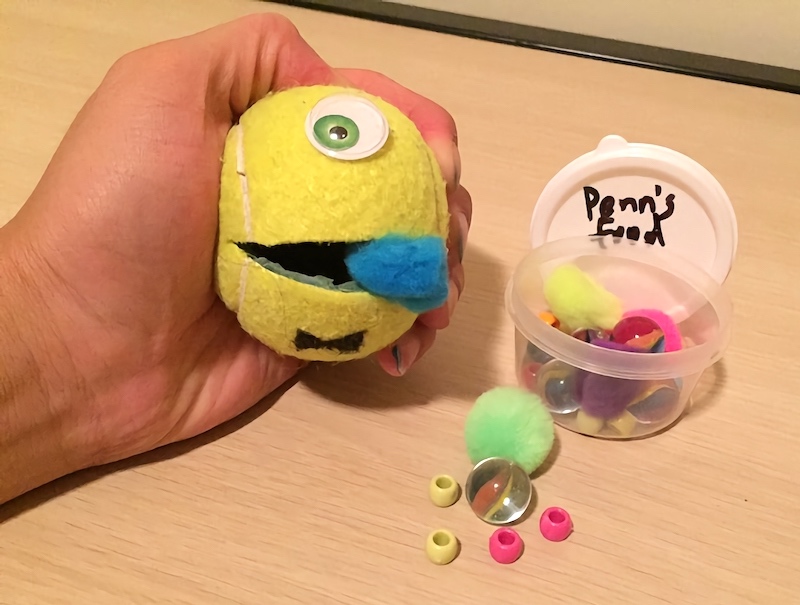
Hand Strength & Pincer Grasps — Landon had to squeeze really hard with one hand to get Penn to open his mouth, and then use a precise pincer grasp to pick up “food” to feed him
We also worked on:
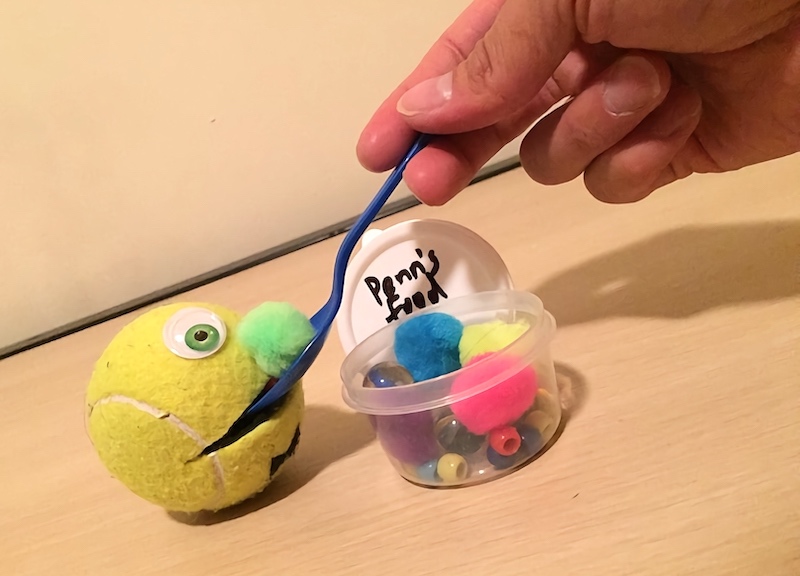
Tool Use — Landon had a lot of trouble feeding himself with a spoon, so we practiced feeding Penn this way so I could help him improve how he held the spoon and manipulated food with it
Landon really had a great time playing with Penn, one of the aides had to interrupt us to get him to the next session. One of the best parts of this fieldwork experience has been playing with the kids and finding fun new ways to provide treatment through games and toys. The children seem to love it, and it’s fun for us too!
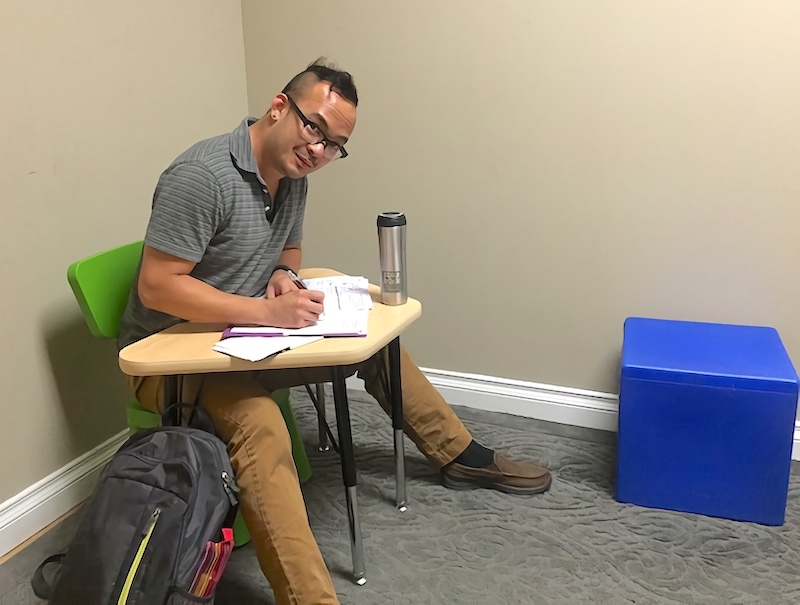
Fieldwork week is over! Time to go back to class . . .
⋯





